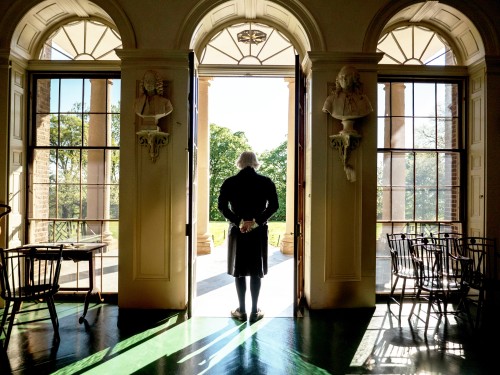When Jefferson spoke in terms of the "civilization" of the Native Americans, he was borrowing from Enlightenment philosophy. The 'Enlightenment' is the term used by both historians and contemporaries to describe the sweeping intellectual changes of the late seventeenth and eighteenth centuries. The great scientific revolution of the seventeenth century led to the belief that the same principles of scientific inquiry could be used to understand human behavior, both in the individual and in entire populations. A theory that grew from this was that of "environmentalism," which held that a human's environment - climate and geography, especially - shaped human appearance, culture, and political organization.
European naturalists used the theory of "environmentalism" to argue that plants, animals, and the native peoples of America were inferior to that of Europe due to climate and geography. Jefferson refuted these notions in his only book, Notes on the State of Virginia, and defended American Indian culture. He appended to the Notes, the speech of the Mingo chief Logan, who mourned the loss of his family in an attack by a white settler. Jefferson held up "Logan's Lament" as an example of great and powerful oratory, the equal of any European orator, classical or modern.
"I believe the Indian then to be in body and mind equal to the whiteman," Jefferson wrote to the Marquis de Chastellux. Only their environment needed to be changed to make them fully American in Jefferson's mind. Even though many American Indians lived in villages and many engaged in agriculture, hunting was often still necessary for subsistence. It was this semi-nomadic way of life that led Jefferson and others to consider Indians as "savages." Jefferson believed that if American Indians were made to adopt European-style agriculture and live in European-style towns and villages, then they would quickly "progress" from "savagery" to "civilization" and eventually be equal, in his mind, to white men. As President, Jefferson would try to make these changes a reality.
